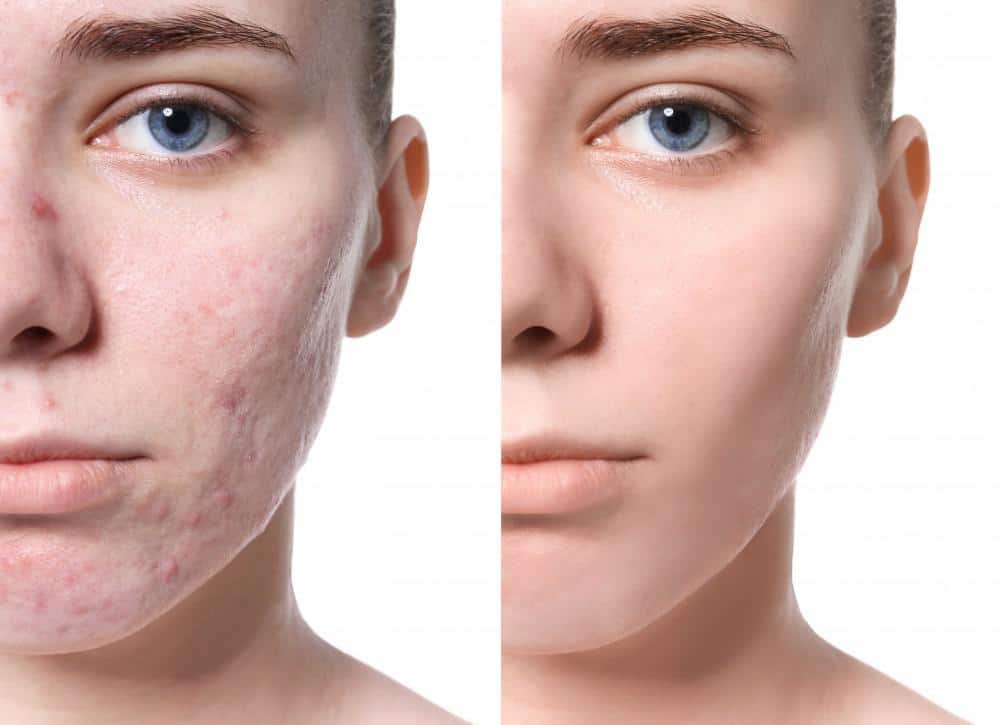
Using home remedies to treat acne scars can be risky and ineffective, especially for textured scars. Some popular DIY solutions like lemon juice and baking soda can severely irritate and damage the skin, causing worse hyperpigmentation and new breakouts. Instead, dermatologists recommend using topical products with specific, naturally derived active ingredients that are backed by science.
Acne scars can be categorized into two main types, and the best treatment depends on which kind you have:
- Hyperpigmentation: Flat, dark marks left behind after a breakout fades.
- Atrophic scars: Indented or pitted scars caused by a loss of collagen.
For fading hyperpigmentation
For dark spots that are flat against your skin, look for products containing these ingredients:
- Aloe vera: Contains aloesin and aloin, natural depigmenting compounds that may lighten dark spots.
- Azelaic acid: Found in grains like wheat and barley, this acid helps reduce inflammation and can correct dark spots.
- Licorice extract: Contains the active ingredient glabridin, which can lighten discoloration caused by inflammation and sun exposure.
- Niacinamide (vitamin B3): Reduces inflammation and helps to even out skin tone and discoloration.
- Red onion extract: An ingredient in some scar-lightening creams, red onion extract has shown potential for reducing hyperpigmentation.
- Vitamin C: A powerful antioxidant that can help fade post-acne marks and reduce melanin production.
For smoothing atrophic (pitted) scars
Atrophic scars are best treated by boosting the skin’s collagen production.
- Rosehip seed oil: Rich in fatty acids and bioactive vitamin A, rosehip oil can boost collagen and elastin production. One study showed it improved the appearance of postsurgical scars after regular use.
- Lactic acid: A mild alpha-hydroxy acid (AHA) found in milk, lactic acid acts as a gentle peel to help exfoliate dead skin cells. This improves skin texture and can soften pitted scars over time.
- Retinoids: These vitamin A derivatives accelerate cell turnover and boost collagen production to improve skin texture and fill in scars. Retinoids are available in both over-the-counter and prescription formulas.
Precautions for natural remedies
While some ingredients are effective, others come with serious risks.
- Avoid certain DIY treatments: Many popular home remedies can cause more harm than good. These include lemon juice, which can cause chemical burns, and baking soda, which can disrupt your skin’s pH balance.
- Always dilute essential oils: Use a carrier oil, like jojoba or coconut, to dilute essential oils like rosehip or tea tree oil before applying to your skin to prevent irritation.
- Perform a patch test: Before applying any new product or home remedy to a large area, test a small amount on a discreet patch of skin, like your inner forearm. Wait 24 hours to check for an adverse reaction.
- Use caution with sensitive skin: Some people find that ingredients like diluted lactic acid or apple cider vinegar can cause stinging or irritation, especially on sensitive skin.
Safe and effective natural alternatives
Instead of using unproven home remedies, consider these safer options:
- Aloe vera gel: Pure aloe vera gel can be applied directly to the skin to moisturize and promote healing.
- Honey: Manuka or raw honey has antibacterial properties that can help with wound healing and may reduce the risk of future scarring.
Best practices for treating acne scars
For optimal results and to prevent new scars from forming, follow these best practices:
- Use sunscreen daily: UV rays can darken acne marks and make existing scars more noticeable.
- Avoid picking or squeezing: Do not pick at active breakouts, as this is a primary cause of acne scarring.
- Consult a dermatologist: For the most reliable and safest treatment, especially for atrophic scars, consult a medical professional. They can determine the best course of action and recommend stronger treatments if needed.